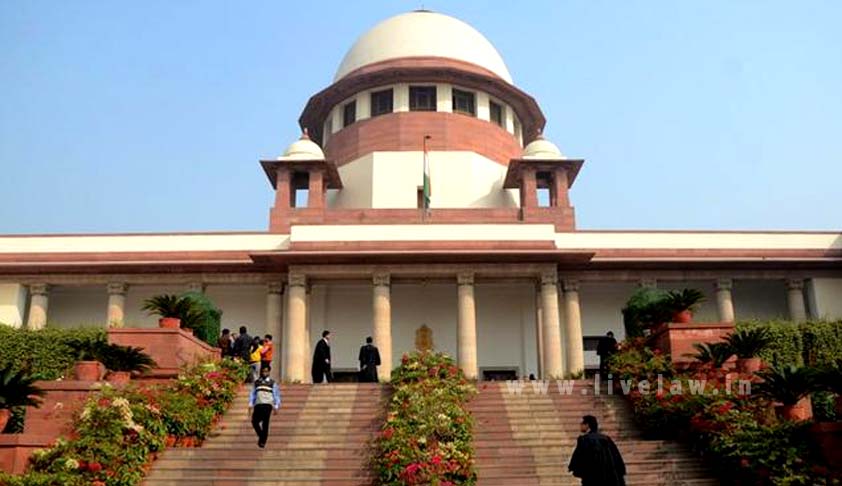The DRI’s scope to issue Demand Notices had been subject matter of challenge in the past as well; the Hon’ble Supreme Court in Commissioner Vs. Syed Ali, Judgment dated 18th February 2011 held that a demand notice can only be issued by the so called ‘proper officer’ who had the jurisdiction to assess the goods at the time when the same were being imported and cleared and not any other officer.
The coming financial year will be an interesting time for the Indian Indirect Tax (IDT) Regime in view of the ruling of the Hon’ble Apex Court (Apex Court) in M/s Canon India Pvt Ltd Vs. CC, judgment dated 9th March 2021. This ruling will not only have a direct impact on the working of the Tax Board and its subordinate institutions but will also force the Tax Administration to think and restructure its administration.
In above case, the Apex Court while deciding the eligibility of the Tax Payer to claim exemption from Basic Customs Duty under a notification, stumbled upon a procedural aberration in issuance of the show cause notice which it was unable to ignore. The Show Cause Notice was issued to the Appellant by the Department of Revenue Intelligence (DRI), the intelligence wing of the Tax Department; whereas the goods which formed the subject matter of the case was assessed and cleared at the customs port by the jurisdictional officials of the Customs Department. The Apex Court raised the preliminary doubt whether the DRI can be considered a “proper officer” having the locus to issue a Show Cause Notice under section 28 of the Customs Act, 1962 to the Assessee when the issue fell within the adjudicatory and administrative control of the jurisdictional Customs Department.
Before we dwell further, it is necessary to understand the administrative structure of the Indirect Tax Board i.e, the erstwhile Central Board of Excise and Customs (CBEC) and the present Central Board of Indirect Taxes (CBIC). Under the Tax Board, amongst other departments, it is the DRI that collects intelligence on revenue evasion which eventually culminates into issuance of Demand Notices based on the investigation and the consequent allegations framed against the Assessee. The DRI would work to probe into issues of deviance and then refer the matter to the law enforcement wing of the Ministry or pass on the information to other wings of the Government for taking appropriate measures. The DRI officials have a pan India jurisdiction and can investigate on any issue which it feels has connection to customs duty evasion. Over the course of years, DRI had issued plethora of demand notices without considering that it had exceeded its jurisdiction. In many cases, the goods were cleared at the customs port or objections were raised during the clearance procedure by the Jurisdictional Commissionerate, but the demand notice would be issued by the DRI.
Syed Ali case and Managali Impex Case
The DRI’s scope to issue Demand Notices had been subject matter of challenge in the past as well; the Hon’ble Supreme Court in Commissioner Vs. Syed Ali, Judgment dated 18th February 2011 held that a demand notice can only be issued by the so called ‘proper officer’ who had the jurisdiction to assess the goods at the time when the same were being imported and cleared and not any other officer. To overcome this ruling, in 2011, the Legislature brought an amendment in the Customs Act, 1962 which gave all Customs Officers, en masse the power to issue show cause notices. The Hon’ble Delhi High Court in Mangali Impex Vs. Union of India, Judgment dated 3th May 2016 clarified that the validating amendment brought by the Legislature in 2011 will apply prospectively and not retrospectively. The Revenue’s petition against this order is currently pending with the Hon’ble Apex Court.
Impact of Judgment dated 9 March 2021
The recent judgment has led to certain questions which only time will answer. While it is already being speculated that the Revenue will rush to get this Judgment reviewed, the Indirect Tax Board will also have to determine the fate of all the demand notices that have been issued by the Intelligence Officers, wherein the power to issue notices has been statutorily entrusted upon other Customs Officers. Does the ruling once and for all invalidate all such notices?
Another question which arises is the fact whether this Judgment arms the Asseessee wherever such notices have been issued to approach the Court and seek quashing of such notices. In addition to the above, both the Revenue Department and the Asseessee(s) cannot ignore the fact that against the Judgment of Mangali Impex passed by the Hon’ble Delhi High Court, a batch of revenue petitions are pending with the Supreme Court.
Will the ruling dated 9th March 2021 lead to summary dismissal of the pending batch of revenue petitions? Or will the Revenue use this batch to convince the Apex Court to refer this matter to a larger bench for reconsideration?
Irrespective of what happens, the Revenue Department must understand that the Apex Court has initiated the trend of setting the tax machinery in order and the Indirect Tax Board must draw inspiration from such judgments to bring reforms not only on substantive issues of tax but also in its administrative wing. It is easy to retrospectively amend a provision and validate a governmental action, but the Government must consider that the time is ripe to revisit its working procedures and bring reforms in tune with the modern tax machinery and principles.

